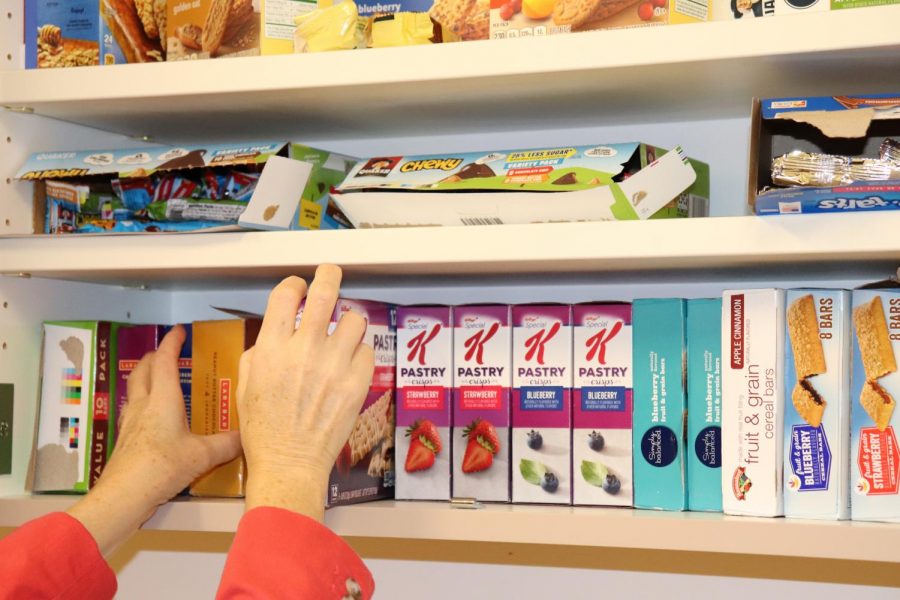Algonquin Breakfast Club provides healthy food for those in need
Science teacher Aimee Selby adjusts breakfast bars in one of the fully stocked cabinets of the new Algonquin Breakfast Club. Students that can’t eat a nourishing breakfast at home are able to go in and sign out food in the morning before school.
October 23, 2019
Teachers started the Algonquin Breakfast Club this year to give food to kids without the means for a nourishing breakfast. The idea for the club originated with teachers Aimee Selby and Gina Johnston, and all the other staff members jumped on board, helping to donate, distribute food and look for ways to sustain the program.
“Our goal is to make sure that kids that are not able to have breakfast at home are able to have breakfast here,” Selby said.
Students that need breakfast can go to the teacher cafe between 6:45 and 7:15 a.m., where they can choose any two items to eat. Afterward, they fill out a Google Form, so the teachers are able to keep track of the food being distributed.
“They can just take their food and go, like a grab and go station,” Johnston said.
The Algonquin Breakfast Club accepts perishable and non-perishable items, including fruits, granola bars and snacks, like peanut butter crackers and trail mix. Their donation bin is in the rotunda, and students are free to drop off food anytime.
“Students and parents have donated food, as well as student council and some local supermarkets,” Selby said. “It’s all been extremely helpful, and we hope more students can donate.”
The student council helped give the Algonquin Breakfast Club the first few donations they needed to start off.
“Student council outlined a budget of $300, and got food that was non-perishable, like breakfast bars and fruit snacks,” student council adviser John Barry said.
According to Johnston, since Algonquin does not have a high enough percentage of kids without means to food, the school is not eligible for help from the Worcester Food Pantry or the federal government. This means the Algonquin Breakfast Club depends entirely on students and families to donate food.
“We want to have more donations, so we have enough food for the kids when they come in to have breakfast,” Johnston said.
The teachers have been having trouble getting the word out to students about this resource, and only one student has gotten food so far.
“I’ve seen flyers for [the Algonquin Breakfast Club] around the school, but I don’t really know what it is,” sophomore Emily Tran said. “It sounds like a good idea, though.”
Johnston hopes more students will learn about the Algonquin Breakfast Club, especially those who need it.
“We want kids who need breakfast to be able to come and get food without any hassle,” Johnston said, “We hope to get the word out about this resource.”












Marla Robinson • Oct 25, 2019 at 6:07 pm
Is there a way for parents to contribute?